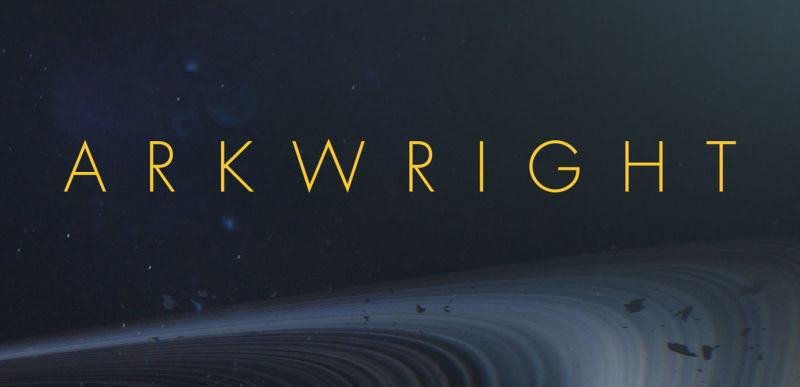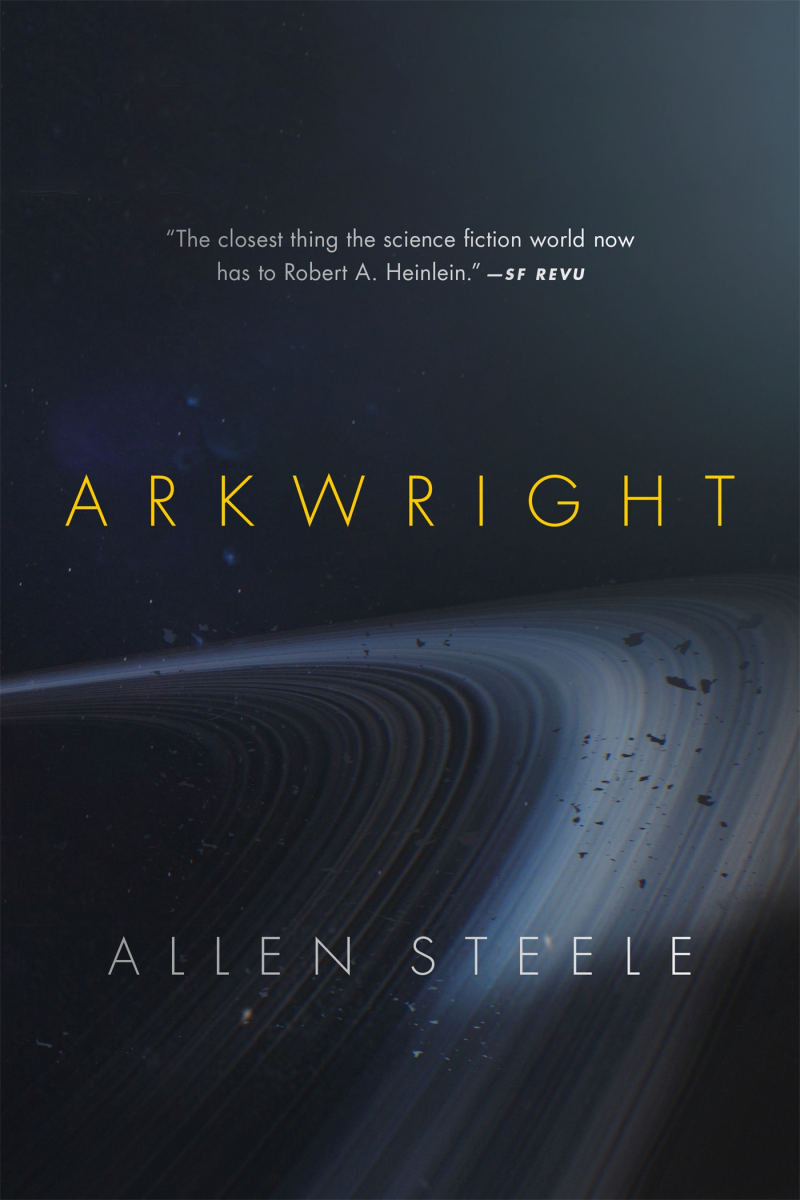Clik here to view.

We really dug Allen M. Steele’s Arkwright, a novel that spans centuries, and talks exactly how science fiction can inspire scientists to change the world.
After reading it, we spoke with Steele about just went into the novel.
Arkwright is a sweeping story that spans centuries: tell us a little about what inspired it.
I’d been kicking around the essential idea for the first part of the novel, “The Legion of Tomorrow”, for quite a few years, doing research between whatever else I was writing at the time. But no editor was interested in a novel about the history of the science fiction genre , and after awhile it occurred to me that the only way I’d ever get to publish this story was if I wrote it in the context of a science fiction novel ... that is, a novel about science fiction that becomes a SF novel itself.
Then a few years ago, I was invited to the Starship Century Symposium at the University of California-San Diego’s Arthur C. Clarke Center. This was the follow up to the 100 Year Starship conference in Florida a couple of years earlier, and once again the organizers, Greg and Jim Benford, brought in a broad range of scientists and writers to discuss the prospects for interstellar travel in this century.
http://www.amazon.com/Arkwright-Alle...
So we had SF writers like David Brin and Joe Haldeman and me rubbing shoulders with scientists like Freeman Dyson and John Cramer and Jill Tartar, with a handful of well-known fans like Mike Glyer and Naomi Fisher there as well, and everyone was on the same wavelength because they’d all been thinking the same thoughts and sharing the same dreams, and it occurred to me that there’s a sort of golden braid between science and science fiction that stretches back over many decades and this was something I’d like to write about. And when I connected “The Legion of Tomorrow” to this, I finally had a way to tell the story I’d been wanting to do for years.
The first part of the novel is wonderfully meta: how difficult was it to insert a totally fictional science fiction author, but which stuck with genre history?
When you study the history of the SF genre, one subtle thing that stands out is that, although space opera has always been central to the field, there’s no one single author who was responsible for space-op and therefore became an outstanding figure like the Big Three were. So while writers like Edward E. Smith, Edmond Hamilton, Murray Leinster, and Jack Williamson were the fathers of space adventure, none of them became as famous as Asimov, Heinlein, or Clarke. The closest we got was Philip Francis Nowlan, the creator of Buck Rogers, but he died in 1939, at the very beginning of the Golden Age, and therefore never really shared in the glory.
So Nathan Arkwright is kind of a composite character. He’s all those writers rolled into one figure, a personification of all the creators of space opera. I imagined him as having the sort of success George Lucas might have had if Lucas had come along several decades earlier and written for the pulps instead of making movies. Once I had that in mind, it was easy to picture Nathan as being one of a Big Four instead there only being a Big Three.
Clik here to view.

This book felt very much like it was an homage to stories that inspired you, but which also gently pulled those stories apart. We don’t have faster than light capabilities, but we do have practical ideas for how to travel through space to other star systems.
Nearly all the technology I wrote about in this novel was discussed at the Starship Century conference and, before that, the 100 Year Starship conference. People much smarter than I am, like the Benford brothers and Freeman Dyson and Bob Zubrin, believe that it is entirely possible that we can develop the ways and means to build the first starship in this century. We don’t have to wait until the 23rd century, and it doesn’t have to be some faster-than-light “Star Trek” vessel. We can start working on it now...and quietly, there are people who already are.
Do you think that the things that you described in this book are practical? What’s holding us back from testing this out?
The biggest thing holding us back, I think, has been the idea that space travel is something that can only be accomplished by NASA. As I said at the symposium, though, while NASA has accomplished many great things and still does, it has become the hostage of Washington politicians whose science education ended in high school and, in some instances, are actively hostile toward science. So any serious effort at space exploration is going to require a different model than waiting for Capitol Hill to supply funding higher than half a cent on the dollar, or thinking only in terms of Apollo-style crash programs.
Does this book mean that you’ve updated your will for the ‘Steele Foundation’?
As if I made that kind of money! Go ask George Lucas ... he’s the one who sold Star Wars to Disney for $4 billion. Maybe he ought to put some of that into turning dreams into reality.
Arkwright is now available in stores.